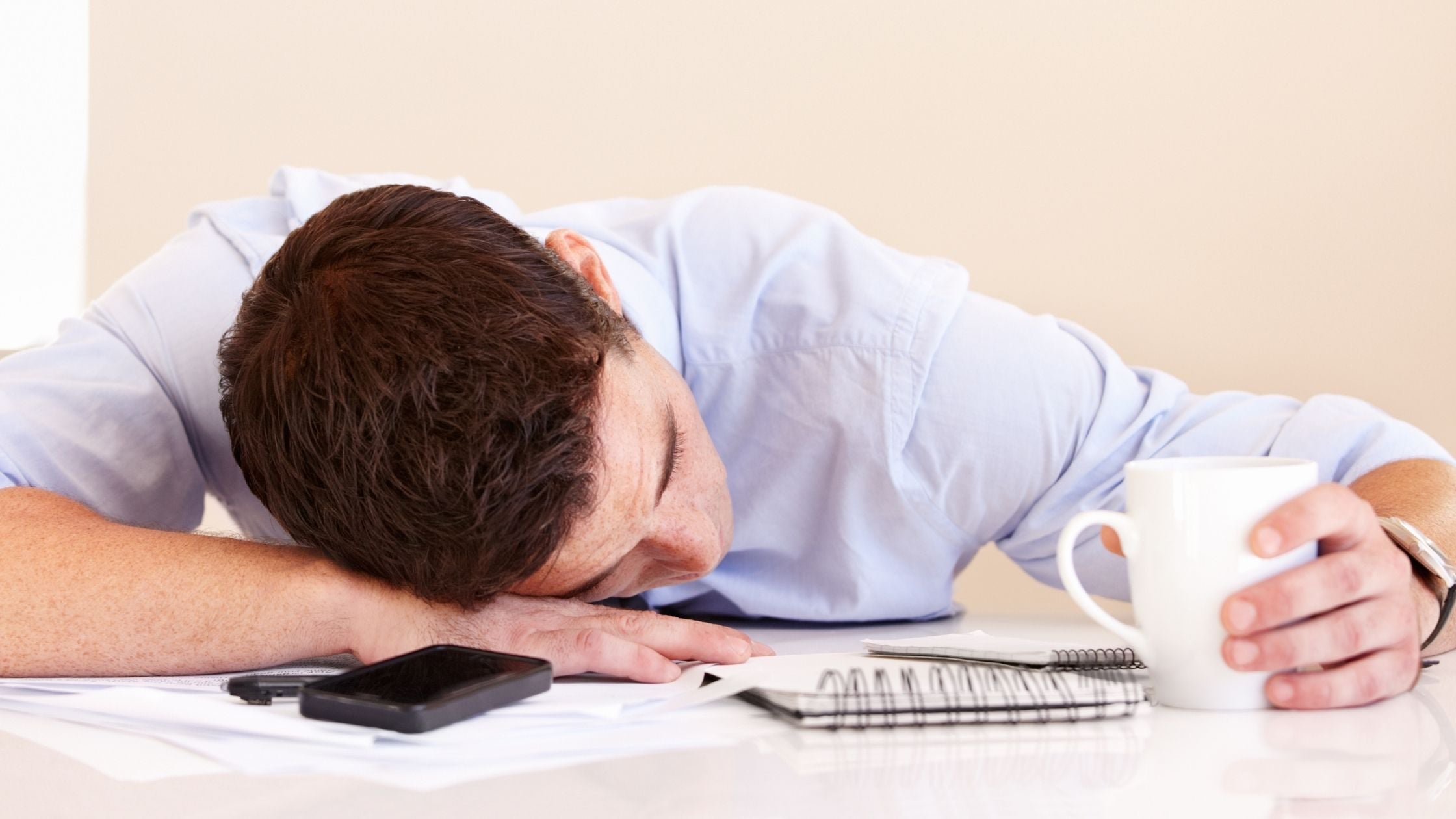Tiredness and fatigue are quite common these days. Many people in lockdown are complaining of a lack of energy during the day. This can seem strange seeing that most people are actually doing less and should therefore be feeling more rested and energized. On the other hand, those that are returning to work might also be struggling to maintain energy levels and focus as it can take a while to adapt to working full time again.
There are many reasons that can cause you to feel drained and it takes a while to adapt to your new circumstances. A lack of sleep, longer working hours, high stress levels, a lack of motivation or just not fueling your body correctly can all result in fatigue.
Whether you are spending your days confined to your home or back at the office, there are a few things you can do to help you get your energy back during the day.
Reduce your stress levels
This is often easier said than done. High stress levels, especially long-term stress, can drain your battery quite quickly. Although some people don’t realise that their high stress levels are wearing them down, most people know by now that they need to control their stress better. There are many strategies you can use to deal with stress such as exercising, taking a warm bath or meditating.
Fuel your body correctly
Another common reason you might be feeling tired during the day is simply because you are not eating enough of the right foods and providing your body with sufficient calories. This can often happen when you are skipping meals or just not eating enough at mealtimes. You can also miss out on vital micronutrients that plays a role in energy production when you do not consume nutritious meals.
Make sure you do not skip meals. If you are prone to skipping meals or just don’t have the time to prepare food and eat it, you can consider an on-the-go snack like USN Trust Bar or a snack replacement shake such as 100% Bluelab™ Whey.
Try to avoid refined carbohydrates and sugar such as cookies and crisps and rather focus on eating meals that contain low GI carbohydrates like whole grains to keep your blood sugar levels more stable.
Caffeine can help, but use it wisely
Caffeine is usually the stimulant that many people turn to when they need an extra boost during the day and there is good reason why. Whether you are well rested or fatigued, caffeine can increase your alertness. This beneficial response is was seen with moderate amounts of caffeine usually around 100-300 mg. Doses of more than 400 mg are more likely to result in anxiety and will impair performance. If you need an easy way to get more caffeine and micronutrients, you might want to consider supplementing with USN Vitablitz capsules or liquid for an extra energy boost. If you prefer to have a drink that contains caffeine, have a look at Amino Ener-G, an anytime amino acid-based energy drink, designed to provide endurance, focus, stamina and recovery. It contains around 150 mg caffeine per serving and other important amino acids.
Get enough sleep
Obviously if you do not get enough sleep you will feel tired during the day. Sleep is an important predictor of fatigue. The problem comes in when people do not realise that they are not getting enough sleep. You might be going to bed reasonably early but then you spend a bit of time on social media and by the time you actually go to sleep, it is very late. Or you frequently wake up during the night and compromise quality sleep time. If you are constantly feeling tired, avoid screen time before bed and try going to be earlier. Sleep is usually the first to go when life gets busy so make sure you prioritise proper sleep.
Exercise
It might seem counter-intuitive to exercise when you feel tired already but a few studies have shown that exercise can actually make you feel more energised. Low and moderate intensity aerobic exercises, in particular, has been shown to be beneficial. This is good news as you do not have to be extremely fit to get these benefits of exercise. You can simply start small by doing something easy that makes you feel better for example going for a walk.
Hydrate, hydrate, hydrate
We naturally lose fluid during the day that constantly need to be replaced. If you are dehydrated it can affect your energy levels. Dehydration can negatively affect your cognitive ability and your mood as well. Make sure you drink enough fluids during the day to keep you hydrated, especially during hot weather and when you have been physically active.
These tips might seem quite straightforward and obvious, but they are often the culprits of fatigue and overlooked. If you feel tired and drained, use these tips as a starting point to help you figure out what the cause of your fatigue is and how to handle it.
REFERENCES:
Kocalevent, R., Hinz, A., Brähler, E. and Klapp, B., 2011. Determinants of fatigue and stress. BMC Research Notes, 4(1).
McLellan, T., Caldwell, J. and Lieberman, H., 2016. A review of caffeine’s effects on cognitive, physical and occupational performance. Neuroscience & Biobehavioral Reviews, 71, pp.294-312.
Puetz, T., 2006. Physical Activity and Feelings of Energy and Fatigue. Sports Medicine, 36(9), pp.767-780.
Puetz, T., Flowers, S. and O’Connor, P., 2008. A Randomized Controlled Trial of the Effect of Aerobic Exercise Training on Feelings of Energy and Fatigue in Sedentary Young Adults with Persistent Fatigue. Psychotherapy and Psychosomatics, 77(3), pp.167-174.
Masento, N., Golightly, M., Field, D., Butler, L. and van Reekum, C., 2014. Effects of hydration status on cognitive performance and mood. British Journal of Nutrition, 111(10), pp.1841-1852.
Article supplied by USN

